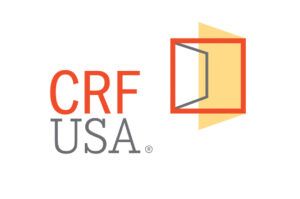By: Alexis Dishman
Whether your business is growing, downsizing, or somewhere in between, sooner or later you may need a cash infusion to support your small business needs.
But it’s a crowded marketplace for small business loans. There are online lenders, bank lenders, Community Development Financial Institutions (CDFIs) and non-profit lenders available to lend money to your business, but how do you know which financing is right for your needs?
This post will explore the various types of small business loans available to small businesses of all sizes and stages of growth.
Term Loans
These loans are a basic, term-based option that allow borrowers to repay the loan amount – with interest – over a set period. Oftentimes this may be the simplest type of loan for entrepreneurs as the application process tends to be straightforward. These loans may be a good fit for businesses seeking to expand or obtain working capital.
Costs can vary for term loans, with loans from online lenders typically carrying higher interest costs than those from banks. Additionally, these loans may require a personal guarantee or collateral – including assets like real property and equipment – to qualify.
SBA Loans
Small Business Administration (SBA) loans are among the most popular forms of financing for small businesses. Unlike term loans, repayment periods depend on how businesses plan to use the money. Repayment periods can range from 7-10 years for equipment purchase and up to 25 years for real estate acquisition.
These loans may work well for businesses looking to expand or seeking to refinance existing debts. Typically, SBA loans require a credit history and a lengthy application process, which may not be suitable for some businesses that need money quickly.
Microloans
These loans are exactly what they sound like; smaller loans of $50,000 or less that are available to startups, newer businesses, or businesses in traditionally under-represented communities. Microloans are often offered by mission-based lenders and some online sources. In addition, services such as consulting, training, and support may be offered along with financing.
Microloans are often used by startups to expand their business and can be used to cover costs including, working capital, supplies, equipment, and more.
Equipment Loans
For businesses that require heavy equipment, fleet vehicles, and more, these loans allow small entrepreneurs to own and build equity in essential equipment without outlaying the full cost at the time of purchase. Equipment loan terms and interest rates are typically calculated based on the expected lifespan of the equipment purchased since the equipment itself serves as collateral.
These loans can be a good fit for equipment-intensive businesses, such as manufacturing, food service, or logistics. Strong credit and business performance typically are required for the most competitive interest rates, and a healthy down payment most likely will be required.
Business Lines of Credit
Like a home equity line of credit (HELOC) that many people use to finance home improvements, business lines of credit allow small business owners to access funds incrementally up to a certain credit limit. You pay interest on only the money you’ve drawn, so there is additional flexibility when compared to a term loan. This type of financing is typically most useful for short-term needs, such as managing cashflow or keeping seasonal businesses afloat during inactive periods.
Business lines of credit may require maintenance fees, draw fees, and other additional costs. Additionally, strong revenue and credit history are typically required, as lines of credit are unsecured by collateral.
This is just a partial list of the types of loans available to small business owners. A good place to start if you’re ready to take the next step toward borrowing money for your business is a trusted financial institution. Complete our small business pre-application form and connect with a lender with products and services that fit your needs.
Disclaimer: the information provided on this page is meant for general informational purposes only and may not reflect the most current resources and recommendations available. Please consult with your financial, tax, legal, and other relevant advisors when making decisions about your small business.



